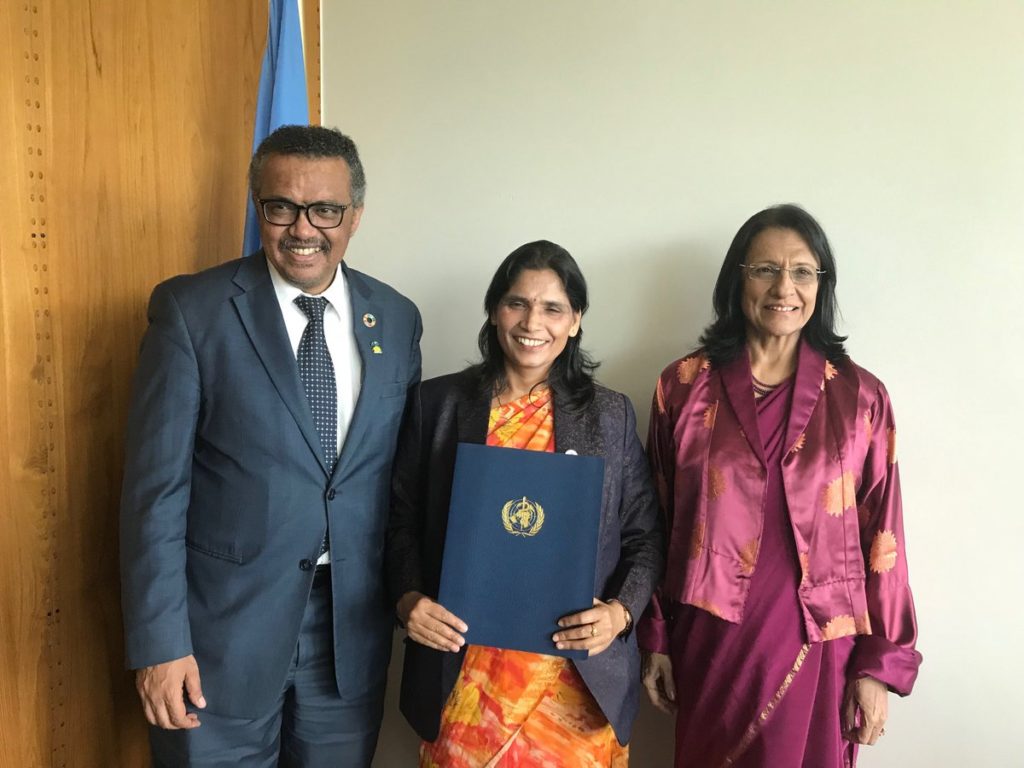Kathmadnu, May 22, 2018 : According to The World Health Organization (WHO), Nepal has successfully eliminated trachoma as a public health problem. With the feat, Nepal becomes the first country in South-east Asia region to achieve the elimination.
The World Health Organization (WHO) acknowledged the achievement by handing a letter validating the same at a program in Geneva, Switzerland. Padma Kumari Aryal, Nepal’s State Minister of State for Health and Population , received the letter of acknowledgement from the WHO South-East Asia Regional Director Dr Poonam Khetrapal Singh and the WHO Director-General Dr Tedros Adhanom Ghebreyesus in Geneva, Switzerland where the World Health Assembly is taking place.
Speaking after accepting the letter of acknowledgement, the state minister Aryal said that the fight against trachoma gained momentum due to strong government commitment and leadership backed by community engagement and the support of health workers and volunteers for making it possible.
According to the WHO, trachoma is an infectious eye diseases that can lead to blindness and is one of the leading causes of preventable blindness across the world. The world body is aiming to get the world rid of this tropical disease as a public health problem.
Nepal has become the first country among the South-East Asia group which consists countries including Bhutan, Bangladesh, DPR Korea, India, Indonesia, the Maldives, Myanmar, Sri Lanka, Thailand and East Timor.
Trachoma is a chronic inflammatory disease of the eye and the leading cause of blindness. Trachoma is due to infection with the bacterium Chlamydia trachomatis. Transmission occurs mainly among children and from children to women caring for them. Key risk factors include inadequate supplies of water and low socioeconomic status. Trachoma affects millions of people worldwide, primarily in rural communities of the developing world and in the arid areas of tropical and subtropical zones.







